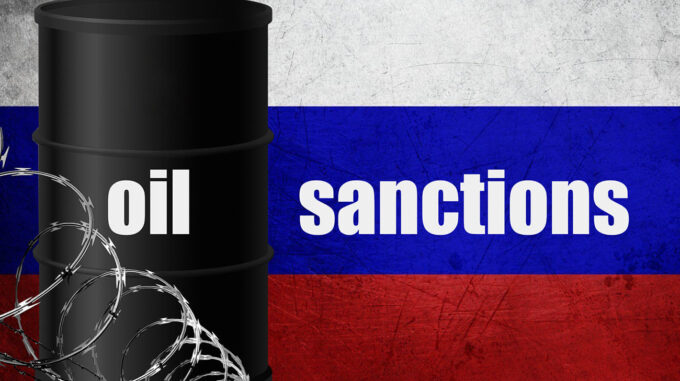A tense debate is unfolding within the European Union regarding new measures against Russia, including radical steps to limit the price of its oil

According to sources familiar with the materials obtained by the Financial Times, the Brussels leadership is aiming to set an upper limit on Russian oil prices at $45 per barrel. EU officials and leading member countries believe this will help intensify sanctions pressure on Russia and restrict its financial capabilities in the context of the ongoing war in Ukraine. According to the information received, the idea of lowering the price cap from the current $60 to $45 has thus far elicited mixed reactions among EU member states. Internal discussions and consultations are still ongoing, as not all countries agree with this step. Neighboring countries and other partner states are carefully weighing the potential consequences of such a decision for the energy market and the economy as a whole. It is reported that Brussels intends to reduce the price ceiling on Russian crude oil exports from the existing $60 to $45 per barrel as part of the 18th package of sanctions against Moscow. This is part of a broader strategy to tighten restrictions aimed at weakening Russia’s economy in response to its actions in Ukraine. During the G7 finance ministers’ meeting last week, the issue of oil prices became one of the key topics. Canada proposed including a clear statement in the joint declaration that calls for strengthening sanctions—including additional restrictions or maximum prices. The idea was supported by the majority, including France, Germany, Italy, and the United Kingdom. However, a decisive moment arose due to resistance from the United States. According to sources, U.S. Treasury Secretary Janet Yellen insisted that the relevant point not be included in the G7 joint statement to avoid escalating the conflict with Washington. As a result, a compromise was reached: the document states that G7 countries "continue to explore all possible options for increasing pressure," including additional sanctions if the situation regarding a ceasefire does not improve further. It should be noted that not all EU countries reacted equally to this initiative. Hungary and Greece, which previously expressed skepticism about oil price limits, are currently considering the potential implications of such a measure. Meanwhile, Finnish Foreign Minister Elina Valtonen expressed her position advocating for an even lower cap—down to $40 per barrel. Ukrainian circles emphasize that lowering the maximum price to $30 would provide more effective tools to strengthen sanctions and counter Russian aggression. Thus, a complex process of reaching consensus on oil price restrictions involving Russia continues within the EU, which could significantly influence future sanction policies and the energy regime in the region. At the same time, the issue remains open, as various countries seek to balance economic interests with security objectives, aiming to prevent escalation of the conflict and to strengthen their positions in the global arena.

